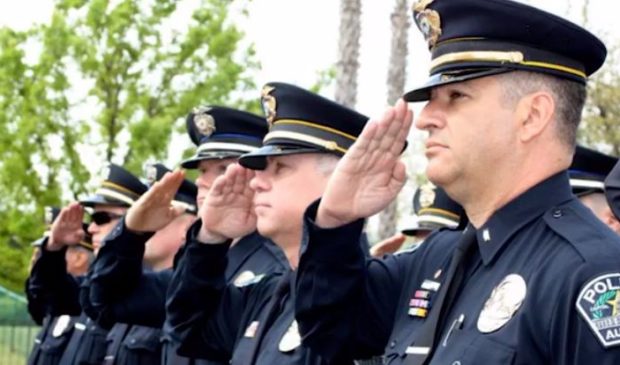Police chief describes new community policing focus
Wednesday, October 4, 2017 by
Jack Craver The Austin Police Department is no longer recruiting new officers by promising them an action-packed thrill ride.
In a presentation to City Council members on Tuesday, Interim Police Chief Brian Manley described the video that the department used as part of its hiring efforts. “It was the SWAT team, it was our bomb patrol, it was our lake squad,” he said. “It was everything that was exciting.”
Now, the video the department is using to attract the next generation of officers “is very community-focused. It’s very much about relationships.”
The new recruitment video is just one of many examples Manley cited as evidence that the department is making great strides in its efforts to adopt a “community policing” model of law enforcement.
“Our vision is to be respected by Austin’s diverse community,” he said.
The department has already adopted 33 of the 79 recommendations from the report prepared last year by Matrix Consulting Group, a national firm that Council hired to study APD’s current practices and recommend improvements to strengthen the department’s relationship with residents. The department is in the process of implementing another 39 recommendations.
Manley, who has been in his position since former Chief Art Acevedo left in November, described the community policing initiative as a series of major changes to the structure and mentality of the policing in the city.
In an attempt to bring police leaders into closer relationships to those they serve, the department will increase its number of patrol commanders from five to nine, so that each of the nine districts can have a dedicated leader. Under the previous system, explained Manley, “commanders didn’t have time to engage with the community,” including attending important community meetings and events.
The department is also sending out surveys to more than 300 “recognized neighborhood associations” to elicit their input on what they would like to see from the police department. Among other things, the department is looking for neighborhood leaders willing to regularly communicate and strategize with cops on how to build trust between law enforcement and the community.
In addition to their weekly CompStat meeting that focuses on trends in crime across the city, police leaders will hold “Community Stat” meetings focused on “identifying measures/priorities that are important to the community,” according to an APD spokesperson.
Just as the department formally recognizes officers for a variety of accomplishments or exceptional performance, Manley wants to put in place a way to reward officers for excellence in community policing.
APD has continued to oppose one recommendation from the Matrix report that suggests tracking the time that police officers spend volunteering with community organizations when they’re off duty. The department said that such a policy would be an overreach into an employee’s personal life and could potentially be illegal.
Nevertheless, said Manley, the department encourages officers to be involved in civic life and volunteer in their free time.
In crafting an overarching community policing policy, the department is drawing on the experience of other cities, seeking to build “a policy that reflects the values of Austin,” said Manley.
By the end of the year, said Manley, the department will be in the process of developing metrics by which its community policing performance can be assessed. By spring, he added, the department should have “at least have some of the metrics defined.”
Mayor Steve Adler emphasized that he would like to see metrics that focus on complaints against police officers as well as “de-escalation” of confrontations between officers and citizens that are “separate from the pure safety measures.”
Council Member Ora Houston lauded the efforts she has seen from APD, saying that the new approach shows that the leadership is “thinking about the community’s needs as opposed to the police’s needs.”
The Austin Monitor’s work is made possible by donations from the community. Though our reporting covers donors from time to time, we are careful to keep business and editorial efforts separate while maintaining transparency. A complete list of donors is available here, and our code of ethics is explained here.
You're a community leader
And we’re honored you look to us for serious, in-depth news. You know a strong community needs local and dedicated watchdog reporting. We’re here for you and that won’t change. Now will you take the powerful next step and support our nonprofit news organization?









